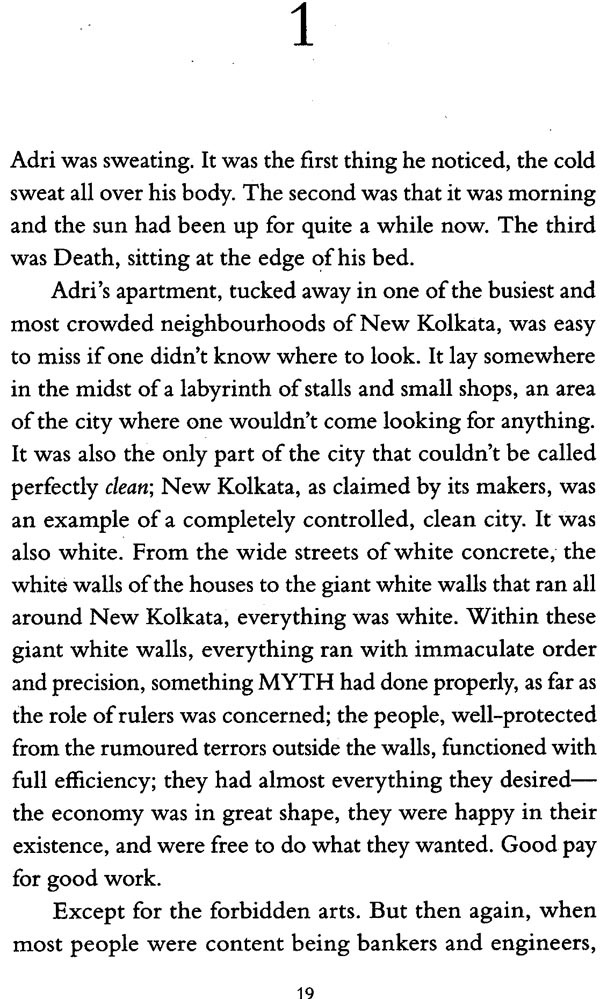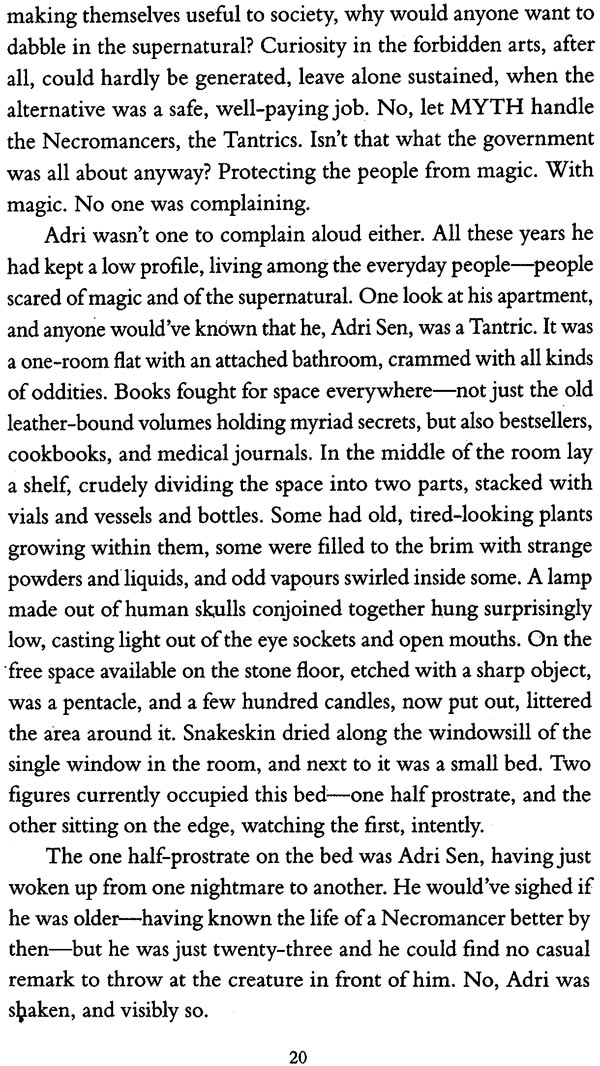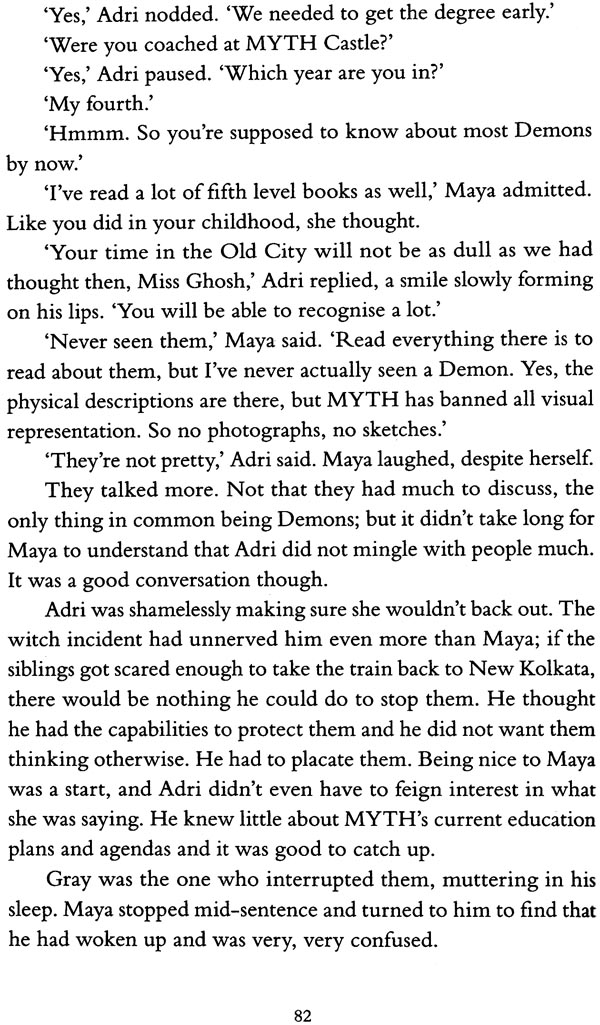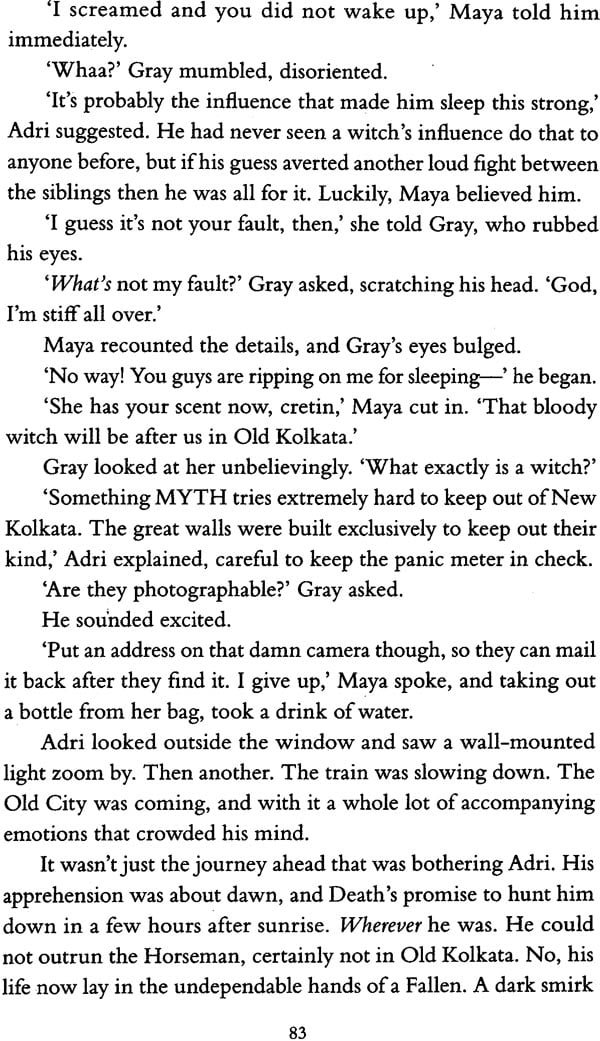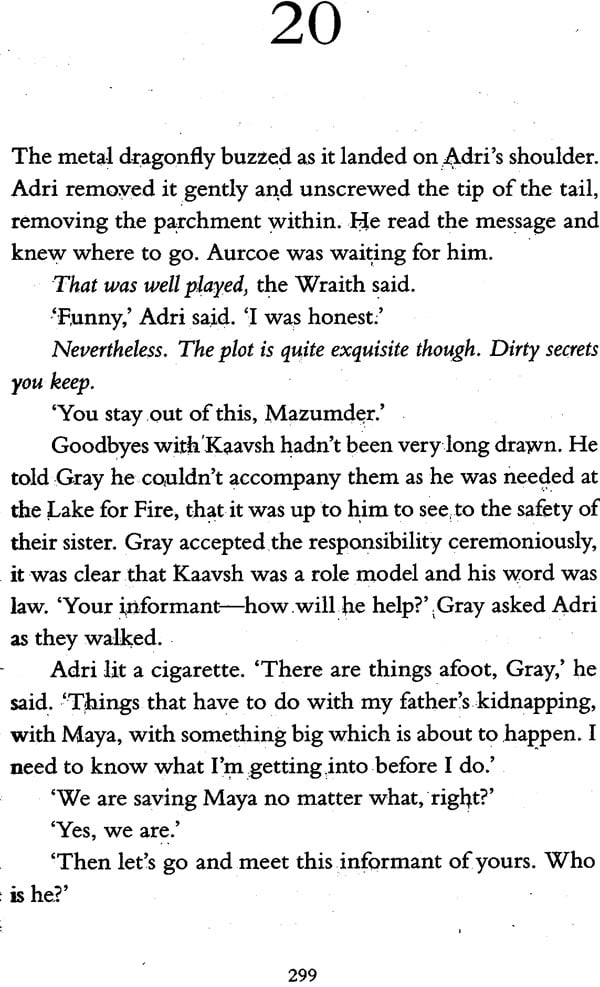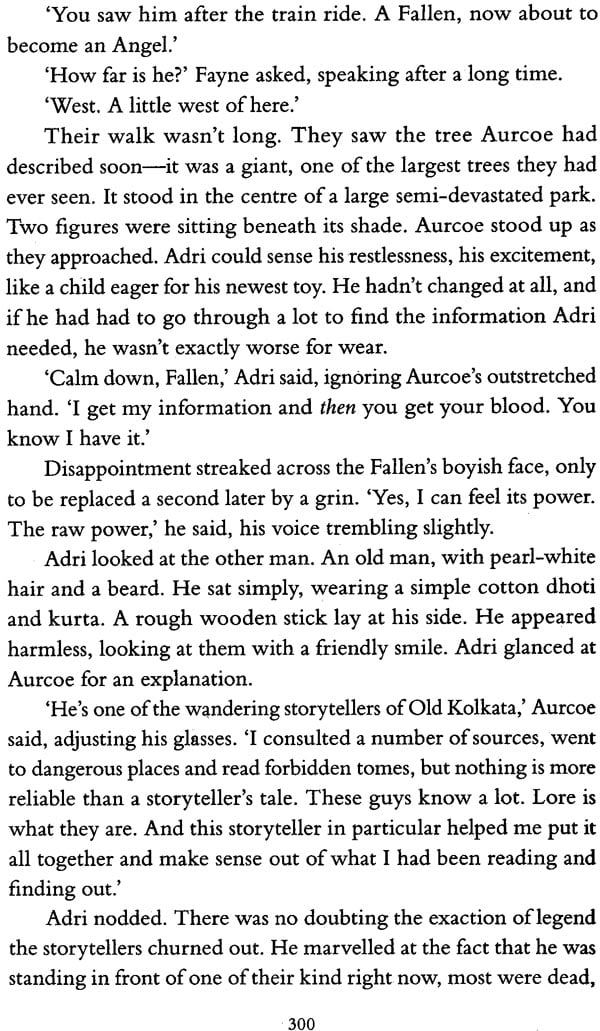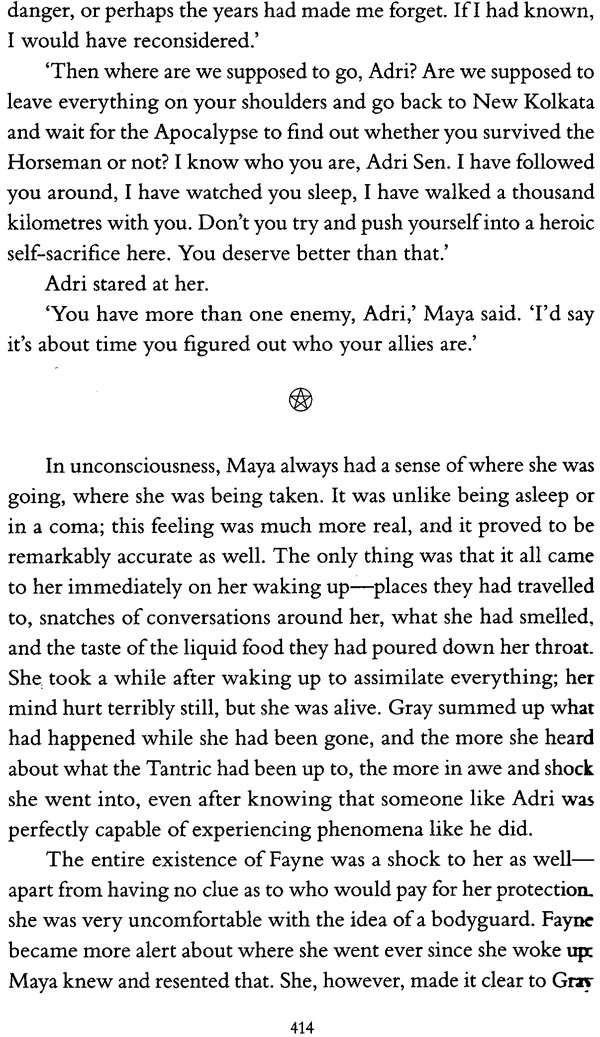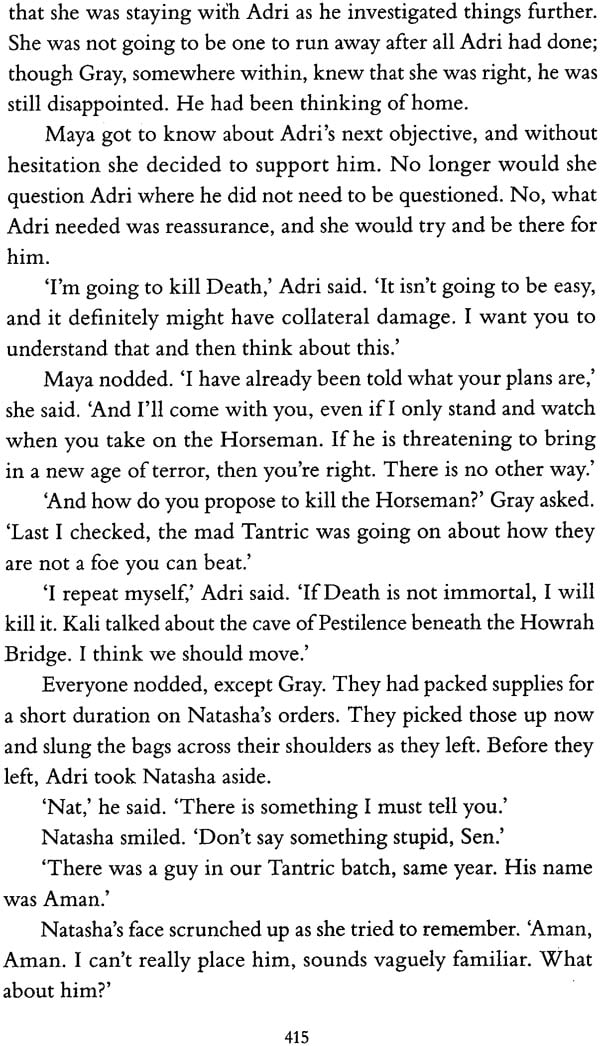
Tantrics of Old (A Novel)
Book Specification
| Item Code: | NAQ506 |
| Author: | Krishnarjun Bhattacharya |
| Publisher: | Prakash Books India Pvt. Ltd. |
| Language: | English |
| Edition: | 2014 |
| ISBN: | 9788172345228 |
| Pages: | 448 |
| Cover: | PAPERBACK |
| Other Details | 8.00 X 5.00 inch |
| Weight | 200 gm |
Book Description
The boy in the castle watched the sunset and thought of escape. He thought of the other children he wasn't allowed to play with. The children who did not belong to the castle, the ones who ran about outside. He could only watch them and suffer alone as he did. Walls. Padlocked doors. Torches burning. And the dank, musty smell that had become a part of him, the smell he had grown up with-amidst the torchlight, amidst the darkness.
He wanted answers. But most of his questions stayed just that-questions. The few people who knew him and talked to him, the people of the castle, they treated him well, though. He wondered about many things, and though having expectations was not something he was able to grasp fully then, he was aware that all the people who knew him, somehow, expected something. From him.
The books were proof enough. After he had mastered reading in the three languages-the Old Tongue being the most important, of course-giant books were deposited in his room, routinely. At first, the thickness of the books scared him-the pages old and frayed, abandoned rather than preserved, the binding hard, dark, worn. Intimidation.
But the boy, with ennui threatening to grip him harder than ever before, had eventually started reading. He had started with History and Geography, but had soon moved on to extremely specific studies of the Old Tongue. He was bright. He could understand almost everything that was there in the books, picking up things and remembering them with surprising ease. If there was anything he could not understand, he would ask his father, who came in once every week, and his father would answer all his questions-except for the more daring ones, the ones whose answers evaded him the most. He had begun studying runes and call-signs dedicatedly. Symbols and figures; runes and scratchy diagrams the books called call-signs, drawing and redrawing them until he almost knew each curve and each stroke. Practice, the books urged. Learn by heart, repeat in dreams. Madness, he thought. Madness inculcated by madmen, inculcated into books with trembling hands. Shaky writing. Occasional dark stains. He forced himself to trust the books, the madness, for there was nothing else. But nothing was constant, not even the written word. When he got comfortable with his books, a new bunch of books would always find themselves in his room.
The sun had set, the evening arrived, and with it the darkness the boy did not like. While he was free to roam anywhere in the castle that he pleased, he never went where no torches burned. Thoughts occupied his mind as he wandered around the castle tonight. Thoughts that almost stopped him from seeing the tiny light at the end of the west wing. Almost. He stood at the entrance of the dark hall, looking at what had caught his attention: the light at the end of the long, stony corridor, flickering uninvitingly, like the dying breath of something in pain. A dying torch. An open doorway. A narrow flight of steps leading down, somewhere out of sight. Enough to spark his curiosity.
Descending cautiously, the boy heard sounds. Human voices, talking amongst themselves, creating a sense of urgency-things being moved somewhere, furniture being shifted, a noisy affair, yet hushed. The sounds got louder. And louder. He could discern snatches of conversation now.
`.the incense, is it in order yet?'
`The hour . . . it is almost here .
The boy softly stepped off the last stair, creeping towards the door which stood ajar in front of him.
A tinkle of breaking glass. Then a high pitched cry. A voice that had long done its time. `Curse you, Souvik! Is this the amount of care you have for Aujour?'
With the old man bellowing and another man hurriedly muttering apologies and scooping up the pieces of whatever he had dropped, no one noticed the boy as he entered the room and crept off to stand behind a pillar. Something about the whole surreptitious nature of this-whatever this was-told him it was wisest to stay hidden. There were five people in the room, he saw, all in the familiar black robe of the castle uniform, white runes on the black. The one giving all the orders was old and wrinkled with a mane of dirty, white matted hair on his head. The others were younger, and they scurried around obediently, following his terse instructions.
The room itself, circular in shape, was quite large. A colonnaded ring surrounded the main area that stood a step lower than the pillars. Torches burned all around, making the room appear quite bright, but the secrecy of the affair lent it a very ominous touch. Something moved near the wall at the far end of the room and the boy squinted to see what it was. There, in the shadow of a pillar, was a chair and someone seemed to be sitting on it.
`And which incompetent son of a vulture left the door open?' the old man roared again. 'Have you no understanding of simple rules?'
One of the minions hurried towards the door to shut it. He latched it and turned a giant key in the keyhole. The boy stared at the door. He knew he should not be in the room, but he had never been stopped from going anywhere in the castle. If anyone caught him here, he would just tell them who he was before trouble fell, and he'd be escorted out of the room with nothing more than a few harsh words. For now, therefore, he was safe. And curious.
`We are done, Malik,' someone addressed the old man. 'The room, I believe, is set.'
The old man's face, illuminated by the quivering light of the torches, was grim and impassive. Carved out of rock. `Countermeasures?' he demanded.
`They are ready,' the man named Souvik replied, looking at the other three for a confirmation. They then withdrew strange-looking metallic devices from within their robes and pried them open with faint clicking noises.
`Fire and light. Check, everyone,' Souvik spoke.
`Check,' the others muttered in unison.
The old man's hand now subconsciously went to his neck. The boy caught the movement and saw a tiny locket he wore around his neck. He recognized it. It was a rune sign, the one called Audakha. He did not, however, know its purpose.
`Quite so, then. Let us begin. Suddho, draw the circle,' the old man commanded and walked to the centre of the room, the others following him. They stood close to each other, and the one called Suddho bent down and scratched a circle all around them on the floor with chalk. When he finished, the old man inspected the circle and nodded.
`Bring her,' he said.
Souvik went across the room to the chair the boy had spied earlier, and yanked someone up. He pushed the person into the light and the boy saw that it was a woman. He did not understand beauty, or he would have seen that the woman was beautiful. No,
Book's Sample Pages
